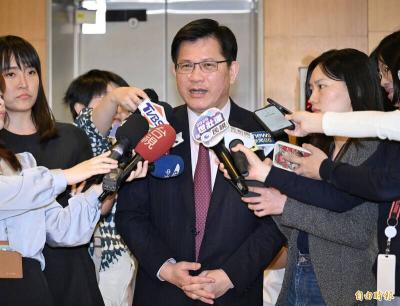Several pan-green civic groups yesterday challenged President Ma Ying-jeou (馬英九) and other government officials to an open debate tomorrow on the topic of a government-proposed economic cooperation framework agreement (ECFA) with China.
The government has urged the public not to oppose the planned trade deal before the details have been disclosed, “but this is ridiculous because opposing something we don’t know is our way of protesting against tyranny,” Taiwan Society director Janice Chen (陳昭姿) told a press conference yesterday.
A protest against the government’s attitude on an ECFA is scheduled to be held tomorrow at 1pm on Ketagalan Boulevard in front of the Presidential Office. Organizers said protesters would voice their concerns in a peaceful manner.
Taiwan Association of University Professors deputy secretary-general Chen Yu-hsin (陳雨鑫) said he suspected the government would proceed to sign an ECFA with Beijing, with or without public consent — a repeat of what the Ma administration did when it signed a protocol with Washington on US beef imports.
“The stage has been set and the invitation has been issued. We are urging Ma not to be afraid to face public scrutiny,” Janice Chen said.
The Taiwan Society said several economic experts would also be at the event to elaborate the negative impacts an ECFA would have on Taiwan.
The invitation to Ma was sent to Presidential Office personnel. As of press time, the president had not responded. Premier Wu Den-yih (吳敦義) and the Minister of Economic Affairs Shih Mao-lin (施茂林) were also invited, but have not responded.
Chen said policy makers had the obligation to explain to the public important agreements, adding that their unwillingness to face the public was a sign of incompetence.

Taiwan would welcome the return of Honduras as a diplomatic ally if its next president decides to make such a move, Minister of Foreign Affairs Lin Chia-lung (林佳龍) said yesterday. “Of course, we would welcome Honduras if they want to restore diplomatic ties with Taiwan after their elections,” Lin said at a meeting of the legislature’s Foreign Affairs and National Defense Committee, when asked to comment on statements made by two of the three Honduran presidential candidates during the presidential campaign in the Central American country. Taiwan is paying close attention to the region as a whole in the wake of a

Chinese Nationalist Party (KMT) Chairman Eric Chu (朱立倫), spokeswoman Yang Chih-yu (楊智伃) and Legislator Hsieh Lung-chieh (謝龍介) would be summoned by police for questioning for leading an illegal assembly on Thursday evening last week, Minister of the Interior Liu Shyh-fang (劉世芳) said today. The three KMT officials led an assembly outside the Taipei City Prosecutors’ Office, a restricted area where public assembly is not allowed, protesting the questioning of several KMT staff and searches of KMT headquarters and offices in a recall petition forgery case. Chu, Yang and Hsieh are all suspected of contravening the Assembly and Parade Act (集會遊行法) by holding

President William Lai (賴清德) has appointed former vice president Chen Chien-jen (陳建仁) to attend the late Pope Francis’ funeral at the Vatican City on Saturday on his behalf, the Ministry of Foreign Affairs said today. The Holy See announced Francis’ funeral would take place on Saturday at 10am in St Peter’s Square. The ministry expressed condolences over Francis’ passing and said that Chen would represent Taiwan at the funeral and offer condolences in person. Taiwan and the Vatican have a long-standing and close diplomatic relationship, the ministry said. Both sides agreed to have Chen represent Taiwan at the funeral, given his Catholic identity and

Taiwan would welcome the return of Honduras as a diplomatic ally if the next president of that country decides to make such a move, Minister of Foreign Affairs Lin Chia-lung (林佳龍) said today. “We would welcome Honduras if they want to restore diplomatic ties with Taiwan after their elections,” Lin said during a legislative hearing. At the same time, Taiwan is paying close attention to the Central American region as a whole, in the wake of a visit there earlier this year by US Secretary of State Marco Rubio, Lin said. Rubio visited Panama, El Salvador, Costa Rica and Guatemala, during which he